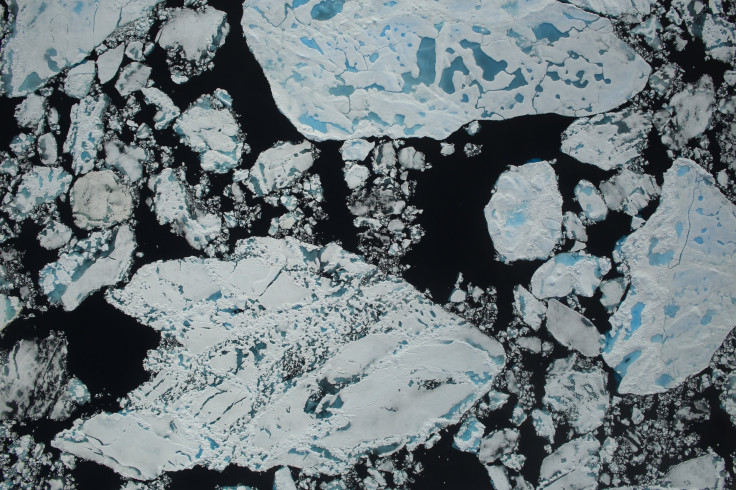Climate Change Indicator: Arctic Ocean Getting Warmer, Becoming More Like The Atlantic

A large international team of researchers has found another troubling indicator of climate change: the Arctic Ocean around the North Pole is getting warmer, and in the process, becoming more like the Atlantic Ocean to its south. Specifically, the eastern Eurasian Basin is now more ice-free and showing mixing of vertical layers of water, a phenomenon common in the Atlantic.
Record-breaking loss of sea ice has become a common feature in the Arctic every summer the last 10 years or so. Since 2011, the eastern Eurasian Basin region has been nearly free of ice at the end of every summer.
In a statement issued Thursday, the American Association for the Advancement of Science said the changes in the Arctic Ocean “will have substantial impact on other components of the Arctic Ocean system. For example, it will likely enhance atmosphere-ocean interactions that affect the ocean's heat storage and currents, change freshwater storage and export patterns, alter Arctic ecosystems and possibly change the ocean's response to acidification.”
Read: Why Is Arctic Ice Turning Green?
The researchers, led by Igor V. Polyakov from the University of Alaska Fairbanks, published a study that appeared in the journal Science under the title “Greater role for Atlantic inflows on sea-ice loss in the Eurasian Basin of the Arctic Ocean.” In the study, they say: “This encroaching 'atlantification' of the Eurasian Basin represents an essential step toward a new Arctic climate state, with a substantially greater role for Atlantic inflows.”
Offering a simpler explanation, Polyakov said in the statement that the number of distinct layers, as defined by temperature and salinity, in the ocean had reduced. The consequent increased mixing of nutrients among the layers could lead to changes in the local ecosystem. Also, as the warmer water from the deeper layers mixes more with the cooler layer traditionally on top, it hinders the formation of ice, even in winter months.
Polyakov, who with his colleagues has been making regular trips to the Arctic Ocean since 2002 to deploy and maintain buoys that monitor the Arctic Ocean system, said: “In the past this extensive warmth was well isolated from the surface layers and ice by a fresh cold layer... Our moorings demonstrated that this layer disappeared in 2013-14 and 2014-15 winters, which has never been observed of the Arctic Ocean before.”
The team behind the study included researchers from Germany, Norway and Russia.
© Copyright IBTimes 2024. All rights reserved.





















